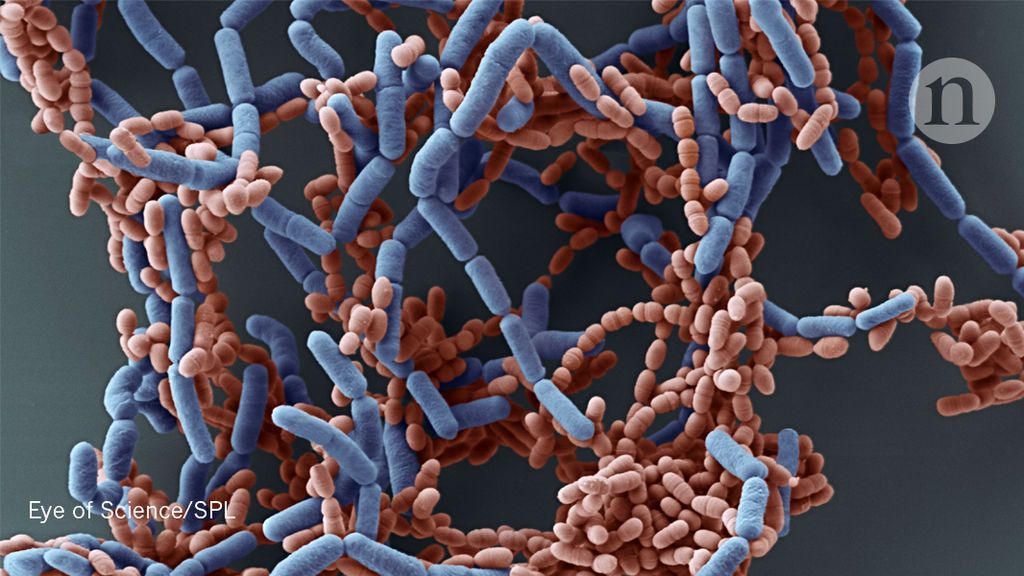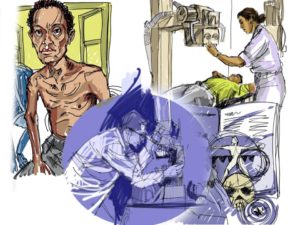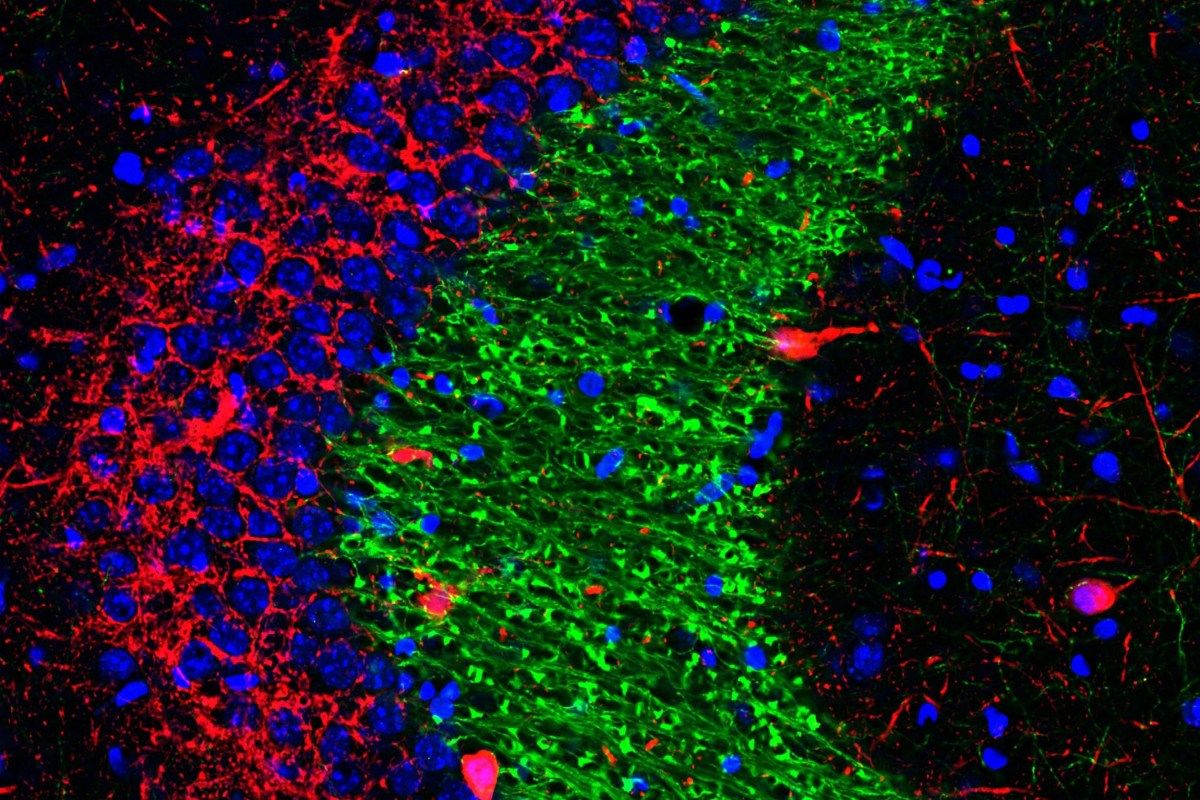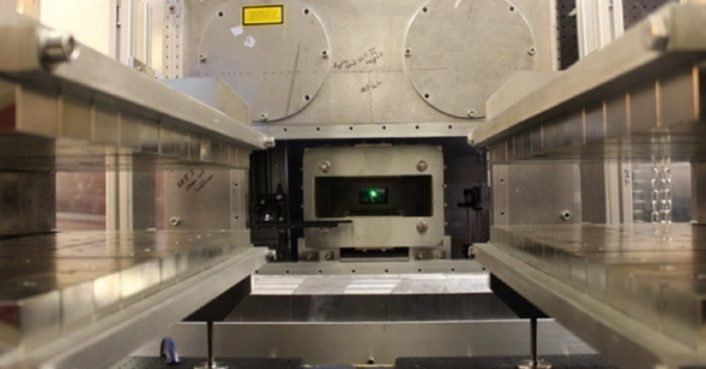Page 9911
Interesting.
Guillermo Haro was a Mexican astronomer. He was the first person elected to the Royal Astronomical Society from a developing country. He is portrayed on Google Doodle on 21 March 2018, commemorating his 105th birthday.
Mar 21, 2018
The Difficult Birth of the “Many Worlds” Interpretation of Quantum Mechanics
Posted by Genevieve Klien in category: quantum physics
Hugh Everett, creator of this radical idea during a drunken debate more than 60 years ago, died before he could see his theory gain widespread popularity.
- By Adam Becker on March 21, 2018
Mar 21, 2018
Bioquark Inc. — Al Bayan News (UAE) — AI and Health — Ira Pastor
Posted by Ira S. Pastor in categories: aging, automation, big data, bioengineering, biotech/medical, business, computing, genetics, health
Tags: aging, AI, anti-aging, bioquark, biotechnology, health, healthspan, lifespan, longevity, wellness
Mar 21, 2018
A drug to slow spread of dementia could be available in three years
Posted by Dan Kummer in categories: biotech/medical, neuroscience

A drug to slow the spread of dementia could be available in three years and a ‘vaccine’ that prevents the disease within a decade, experts say.
- It is now a matter of ‘when not if’ a cure will be found for Alzheimer’s
- Last year dementia became Great Britain’s number one cause of death
- Existing drugs for Alzheimer’s only treat the symptoms, not causes
By Colin Fernandez for the Daily Mail
Continue reading “A drug to slow spread of dementia could be available in three years” »
Innovation is the latest social, political and economic battleground. Techno-optimists dismiss fears about innovation, typecasting non-believers as Luddites. The impact of recent technological changes, they believe, will be realised over time. Luddites, on the other hand, point to weaknesses in technology.
Policymakers are placing their faith on technological advancements to boost flagging growth. But it is founded more on hope than reality.
By Satyajit Das
Mar 20, 2018
Targeting levels of specific protein could improve memory in aging, reduce symptoms of PTSD
Posted by Nicholi Avery in categories: biotech/medical, genetics, life extension, neuroscience
A neural circuit mechanism involved in preserving the specificity of memories has been identified by investigators from the Massachusetts General Hospital (MGH) Center for Regenerative Medicine and the Harvard Stem Cell Institute (HSCI).
They also identified a genetic “switch” that can slow down #memory generalization — the loss of specific details over time that occurs in both age-related memory impairment and in post-traumatic stress disorder (#PTSD), in which emotions originally produced by traumatic experiences are elicited in response to innocuous cues that have little resemblance to the traumatic memory.
“The circuit mechanism we identified in mice allows us to preserve the precision or the details of memories over the passage of time in adult as well as aged animals,” says Amar Sahay of the MGH Center for #Regenerative Medicine and HSCI, corresponding author of a paper appearing in Nature Medicine. “These findings have implications for the generalization of traumatic memories in PTSD and for memory imprecision in #aging.”
Mar 20, 2018
Drugs to vaccinate over-50s against Alzheimer’s could be here in a decade…with a £ 9bn price tag
Posted by Genevieve Klien in categories: biotech/medical, neuroscience
D rugs to vaccinate everyone over the age of 50 against Alzheimer’s could be available within 10 years, but would cost the NHS £9 billion, a new report has shown.
New analysis commissioned by Alzheimer’s Research UK found that drugs to halt, slow or reverse the disease could be available in as little as three years with major vaccine and screening programmes possible within a decade.
But dementia experts warned that demand from patients would be ‘instant and huge’ and called on the NHS to act now to make sure funds were in place for when the breakthroughs occurred.
Mar 20, 2018
Scientists aim to use lasers to turn light into matter
Posted by Genevieve Klien in categories: information science, particle physics
Scientists at Imperial College London are attempting to use powerful lasers turn light into matter, potentially proving the 84-year-old theory known as the Breit-Wheeler process. According to this theory, it is technically possible to turn light into matter by smashing two photons to create a positron and an electron. While previous efforts to achieve this feat have required added high-energy particles, the Imperial scientists believe they have discovered a method that does not need additional energy to function. “This would be a pure demonstration of Einstein’s famous equation that relates energy and mass: E=mc2, which tells us how much energy is produced when matter is turned to energy,” explained Imperial Professor Steven Rose. “What we are doing is the same but backwards: turning photon energy into mass, i.e. m=E/c2.”
Mar 20, 2018
New material capable of detecting dark matter, scientists say
Posted by Genevieve Klien in categories: cosmology, particle physics
March 20 (UPI) — Scientists believe a new material, known as a scintillator, will expand the search for dark matter.
New analysis suggests the scintillator material is sensitive to dark matter particles with less mass than a proton, which should allow scientists to look for dark matter among a previously unexplored mass range.
Weakly interacting massive particles, or WIMPs, describe dark matter particles with a mass greater than that of a proton. Scientists have tried to directly detect WIMPs using a variety of strategies, but with no success.
Continue reading “New material capable of detecting dark matter, scientists say” »
















